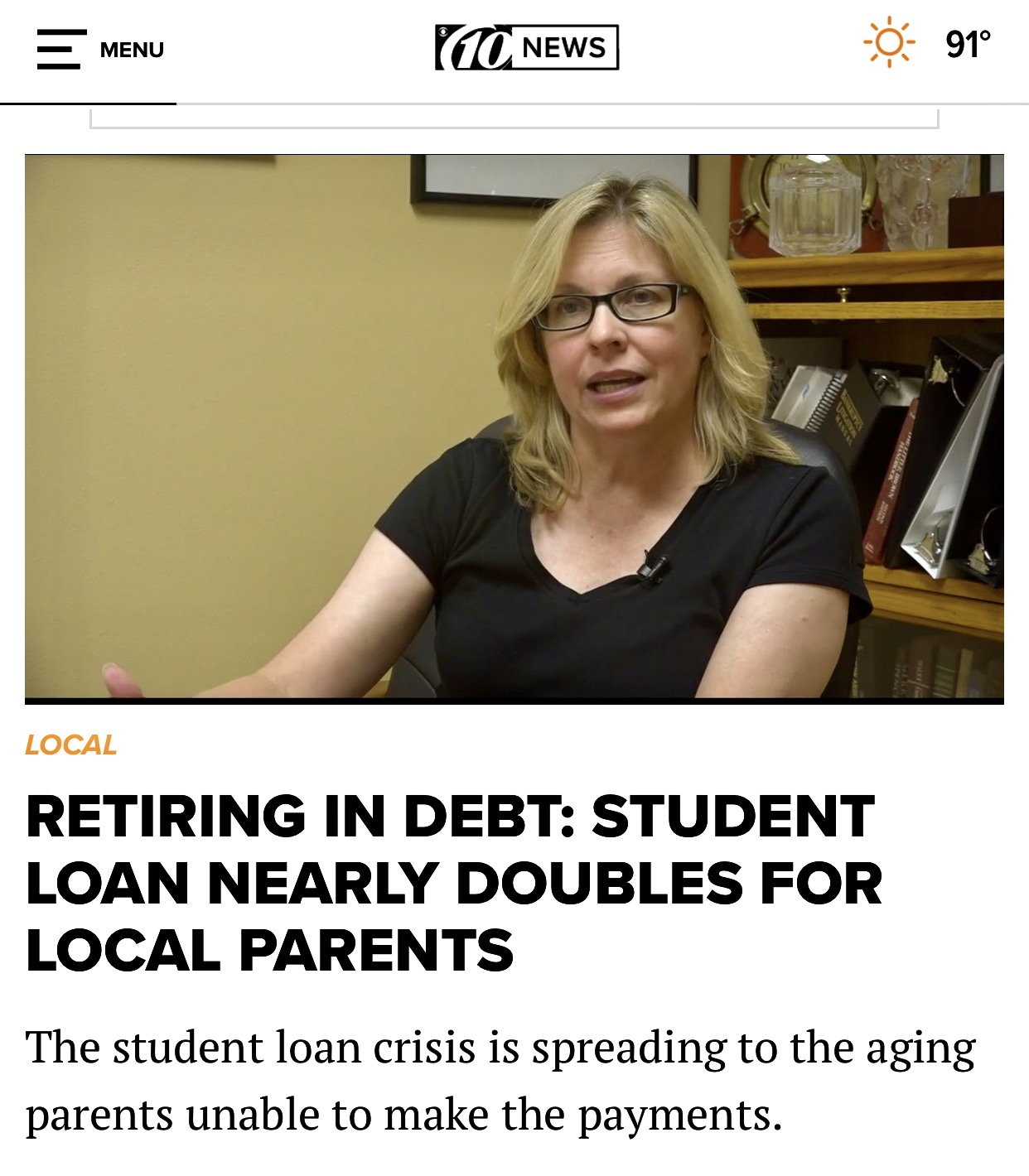
Garin Flowers of Channel 10 ran this story this week with a married couple we have represented with Parent Plus loans. These loans had doubled before they came and consulted with us for repayment options. When the financial crisis hit in 2008, they were forced to go on forbearance for a number of years and the loan went from 47k to 84k. When Parent Plus loans are taken out, the parents’ income and number of income producing years before retirement are not even taken into account. Unlike a student with a lifetime of earnings ahead of him or her, parents may have only ten years to retirement – even if there wasn’t a financial crisis causing massive job losses during that time period.
Older Americans have nearly 70 billion of Parent Plus loans as of 2015 according to a January CFPB Report: Snapshot of Older Consumers and Student Loan Debt. The CFPB receives a large number of servicing and debt collection complaints by older Americans.
Nearly 40% of federal student loan borrowers over the age of 65 are in default according to the CFPB Report. Default brings a whole set of nasty outcomes including wage garnishment, social security offsets and tax refund interception, as well as negative credit ratings. Often a student loan attorney can help to prevent a default or cure a default that has already occurred. We have found there are solutions, and often the servicers do not discuss all of the available options with borrowers. They tend to emphasize forbearance – which is a temporary bandaid at best. The loan balance just continues to increase – and capitalized interest adds up quickly.
 Reboot Your Life: Tampa Student Loan and Bankruptcy Attorney Blog
Reboot Your Life: Tampa Student Loan and Bankruptcy Attorney Blog








